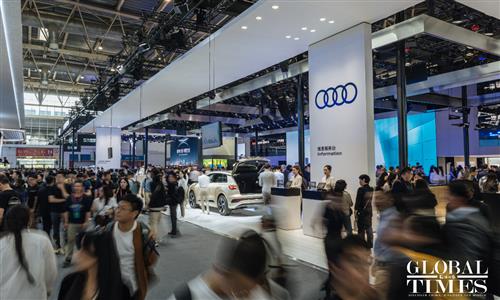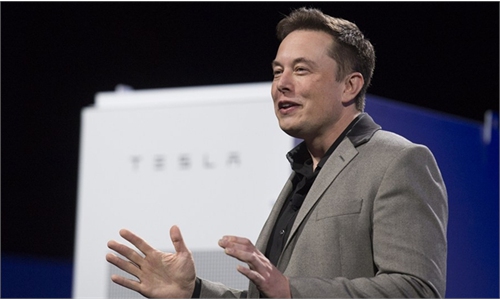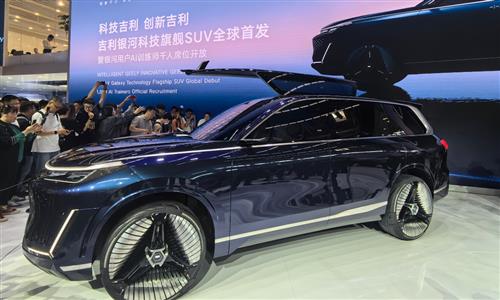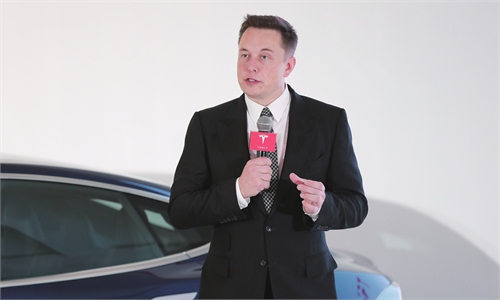Beijing Auto Show 2024 wraps up with a bang, as 892,000 visitors chase new technologies
NEVs take center stage
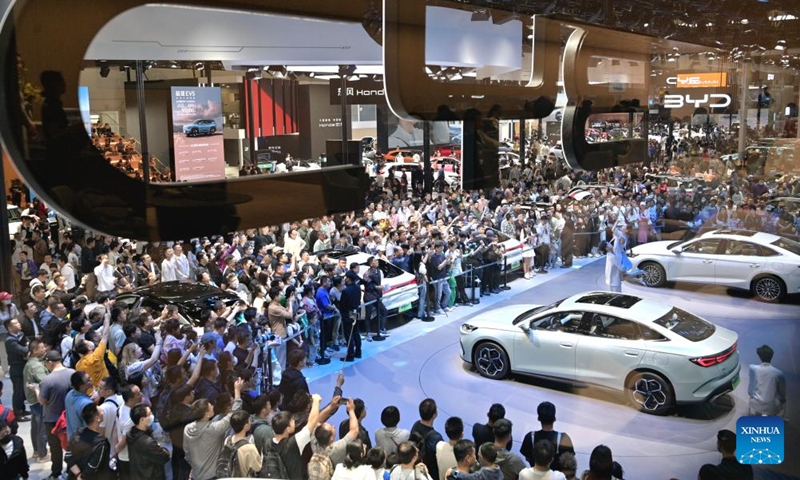
Visitors are seen at the exhibition area of Chinese NEV manufacturer BYD during the 2024 Beijing International Automotive Exhibition in Beijing, capital of China, May 4, 2024. The exhibition closed on Saturday. Photo: Xinhua
The 2024 Beijing International Automotive Exhibition, or Beijing Auto Show 2024, put down its curtain on Saturday after a 10-day-long run across a vast exhibition area of 22,000 square meters, attracting more than 892,000 visitors to the event, including 28,000 international attendees from all over the world.
The auto show witnessed 117 new vehicles making their debuts, with global premieres of up to 30 car models from international brands, which is a manifestation of the growing importance of Chinese customers and the country's huge market.
Chinese auto brands are evolving rapidly and they make many traditional car brands look old and lose market share, indicative of the brighter future of Chinese automotive industry, a visitor from the UK attending the event told the Global Times.
From its humble beginning in 1990 with merely 20,000 square meters of exhibition space, the Beijing Auto Show has grown exponentially in the past three decades. Its 18th version this year witnessed China's remarkable journey in auto exploration and development, as verified by the nation's leadership in new energy vehicle (NEV) manufacturing and its growing market competitiveness in the world.
NEVs in spotlight
During this year's show, the spotlight was undoubtedly on NEVs, which accounted for more than 80 percent of the 117 new vehicle models debuted at the event. In total, 278 models of both NEVs or with internal combustion engines were put on display, marking a 74 percent increase from the previous auto show.
Notably, as many as 20 new NEV brands made their first appearance there, showcasing the latest development trend in the sector.
This year's Beijing Auto Show demonstrates that NEVs are the future of China's automotive industry. Chinese brands have made significant strides in manufacturing of batteries and electric vehicle technology innovation and development, setting a solid foundation for the country's edge in the mid-to-high-end electric vehicle market, Cui Dongshu, secretary general of the China Passenger Car Association (CPCA), told the Global Times in an interview on Sunday.
In addition to automakers, numerous companies in the NEV supply chain participated in the gala event. Contemporary Amperex Technology Co Limited (CATL), the world's leading battery manufacturer and technology provider revealed the company's latest Shenxing PLUS battery, which is the world's first LFP battery that enables 1,000-km range ride per charge. Along with innovative products like millimeter-wave radar from Cheng-Tech, and high-voltage water heater from Jiangsu Chaoli Co, Chinese companies showcased their latest development at the auto show, leading the global development of NEVs.
"We use batteries from CATL factory in Germany," said Porsche CEO Oliver Blume at the auto show, emphasizing the luxury carmaker's commitment to the Chinese market. During the show, Porsche unveiled its latest Taycan 4 model tailored specifically for the Chinese market, along with its first all-electric SUV model, the Macan.
The rapid development of China's new energy vehicle industry is reflected in its increasing sales volume and global market penetration. In March, Chinese NEV retail sales reached 709,000 units, up 29.5 percent year-on-year, pushing China's share in the global NEV market to 62.5 percent, according to official data.
Smart tech on display
Smarter automotive technologies on display form a key highlight of the Beijing Auto Show 2024, spanning from artificial intelligence (AI) to autonomous driving.
During the auto show, China's leading technology company Tencent unveiled its "global intelligence" solution for the auto industry, covering various core scenarios such as R&D, production, marketing, services, and corporate collaboration. The company also announced plans related to smart vehicle-use clouds and cockpits, offering autonomous driving cloud services to leading carmakers in the sector.
"We are actively exploring all innovative uses and applications of our cutting-edge technologies, such as AI solutions in various use scenarios," said Tang Daosheng, a senior executive vice president of Tencent.
Increasingly smarter solutions have become a critical component of AI evolution in China, noted He Xiaopeng, chairman of XPeng Motors, one of China's major electric vehicle brands. At the auto show, XPeng announced the incorporation of AI systems in its new models, enabling customized AI travel and enhanced safety features.
Applying AI technology in automobiles will facilitate the rapid advancement to Level 3 autonomous driving, enhancing the driving experience and ramping up ride safety, Jia Xinguang, a veteran auto industry observer, told the Global Times on Sunday.
In addition to automakers and related companies in the auto industry chain, Tmall Auto made its debut to the event as an auto industry platform exhibitor, aiming to stimulate online marketing and transaction for various customized auto brands, and facilitate both new and used vehicle sales, aided with Alibaba Group's advanced platforms and software solutions.
Huge market for clean cars
The introduction of numerous new car models at the Beijing Auto Show reflected the future trend of increasingly diversified and upgraded consumption in the Chinese market, said Cui from the China Passenger Car Association.
With the government's launch of an action plan to promote a nationwide large-scale equipment renewal and trade-in for big consumer goods, coupled with policies from various departments including the Ministry of Commerce that provides incentives for ordinary consumers replacing outdated vehicles with clean, renewable energy powered vehicles, China's auto consumption market is expected to witness further growth in the coming five to 10 years, Cui said.
China's NEV market has experienced remarkable growth rates in the past several years, and with the government's new trade-in policy, it is widely anticipated that stronger consumer enthusiasm for buying cleaner new-energy vehicles will come. The trade-in policy could potentially bring 2 million additional NEV sales in 2024, Cui added.
According to data from the China Association of Automobile Manufacturers, China produced 6.606 million vehicles from January to March this year, representing a year-on-year growth of 6.4 percent. The country also saw 6.72 million vehicles sales in the first quarter of 2024, up 10.6 percent, indicating a flourishing trend of auto shipments.
In contrast, some international auto shows, such as the Internationale Automobil-Ausstellung and Japan Mobility Show, are struggling to achieve breakthroughs due to global automakers' business restructuring and the shrinking consumer demand there. Nevertheless, the Beijing Auto Show is demonstrating unprecedented vitality, reflecting the bright future of China's automotive manufacturing and its huge market size, Jia Xinguang said.
